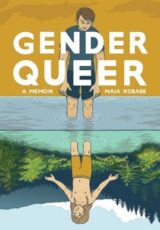HIST 5803W: Women, Gender, and Sexuality History: Foundations
Professor Susan Whitney
Winter 2025
In-person seminar (Wednesdays, 11:30-2:30)
Who’s Afraid of Gender? was published in 2024
Women’s history emerged out of second wave feminism in the 1970s, gender became a category of historical analysis in the 1980s, and the study of sexuality and sexuality history became more visible in academic life in the 1990s. By the dawn of the 21st century, the study of women, gender, and sexuality had become an important part of university curricula in Canada and the United States, one undertaken within both specific academic disciplines and separate institutes for women’s and/or gender studies.
Although there’s always been opposition to feminism and campaigns for women’s equality, gender has been the subject of a “backlash” from right-wing political, civil, and religious forces since the 2010s. These anti-gender movements campaign against a so-called “gender ideology” that they believe undermines traditional notions of the family and society. Primary and secondary schools, along with some universities, have become an important focus for anti-gender campaigners, who seek to restrict the teaching of material related to gender and sexuality as well as the availability of books dealing with these issues.
 The memoir Gender Queer, written to help young people struggling with questions about gender expression and sexual orientation, was deemed the most banned book in the US in spring 2023. Its use has been restricted in many American states.
The memoir Gender Queer, written to help young people struggling with questions about gender expression and sexual orientation, was deemed the most banned book in the US in spring 2023. Its use has been restricted in many American states.
Canada has not been immune to anti-gender campaigns. There have been campaigns to restrict student access to books with LGBTQ themes in many Canadian provinces, including Ontario. The backlash against gender and women’s equality was furthered by the covid pandemic, which hit women harder than men globally.
Course description: This course is designed to provide the context for understanding these developments by introducing students to foundational writing in the history of women, gender, and sexuality since the 1970s. The course provides students with the opportunity to investigate the scholarly trajectory of a leading historian of women, gender, and/or sexuality of their choice in a longer essay. Students are encouraged to choose a scholar whose work is relevant to their own research.
Transnational in conception, the course mixes focused attention to important themes, issues, and historical problems in women’s, gender and sexuality history with attention to the development of historical writing over time. Weekly assigned readings illustrate how historians of women and gender have framed – and debated – historical problems and introduce students to the main theoretical and methodological approaches employed. Special attention will be paid to the topics, debates, and scholarly discussions that have defined the field and set the scholarly agenda. The course underlines the constantly evolving nature of historical scholarship and helps equip students with the tools to analyze academic writing and to develop their own scholarly voice.
Although the readings for Winter have yet to be finalized, topics likely to be included are: the intellectual and political stakes of early women’s history; gender history and its critics; critical historical perspectives on race; women and work; sexuality history; masculinities; feminist history as a transnational undertaking; the relationship between women, empire, and post-colonial realities; women and the environment; and age, gender, race, and class as intersecting categories of analysis. Students will also reflect on the relevance of historical writing for our twenty-first century world and learn about the research that students previously in the course completed for their M.A. theses and major research essays. During earlier iterations of this course, students were pleased by how seminar discussions and assigned readings complemented those of HIST 5000.
Course format and mode of delivery: This course is an in-person graduate seminar. Seminars will consist of discussions of assigned readings led by Professor Whitney. Assigned readings per week typically include 4-5 scholarly articles or a scholarly monograph, such as Joan Wallach Scott’s The Politics of the Veil (Princeton, 2007). All readings will be available electronically through Carleton’s electronic reserve system.
Course assignments and evaluation: Students will be expected to participate in an informed and active manner during weekly seminar discussions and to complete up to two short critical reading responses, a proposal and annotated bibliography, and a 10-12pp paper, due at the end of the term. This paper will explore the work of a leading historian of women, gender, or sexuality. Students are encouraged to choose an historian whose work is relevant for their own M.A. research. Directions and strategies for all written assignments will be discussed extensively during our seminar discussions and posted on Brightspace.
Professor Whitney will meet early in the term with individual students to discuss their academic background, interests, and goals.
Note to students from other academic disciplines: Women’s and gender historians have long incorporated interdisciplinary approaches, and students from academic programs other than History are welcome in the course. They are forewarned, however, that this is a course in women’s, gender, and sexuality history, not in women’s studies. A background in history is advantageous, although not required or essential.
Questions? Please feel free to contact Professor Whitney at Susan.Whitney@carleton.ca

